China- and Russia-led Shanghai bloc eyes Afghan role
- Published
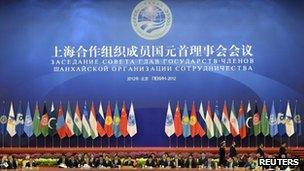
The Shanghai Cooperation Organisation is seeking a role in Afghanistan's 'peaceful reconstruction'
A bloc of Asian countries led by China and Russia is seeking a bigger role in Afghanistan ahead of Nato's pullout.
The Shanghai Cooperation Organisation (SCO) should be involved in its "peaceful reconstruction", China's President Hu Jintao said in Beijing.
The group opposed military intervention in Syria, adding that use of force against Iran - which is an observer at the talks - would be "unacceptable".
China also offered $10 billion (£6.5bn) in loans to the bloc's member states.
Mr Hu announced the loans in a speech broadcast on state television, but did not elaborate on how the money would be disbursed and used.
The SCO group - including the Central Asian states of Kazakhstan, Kyrgyzstan, Tajikistan and Uzbekistan - was formed in 2001 to curb extremism in the region and enhance border security. It was widely viewed as a countermeasure to curb the influence of Western alliances such as Nato.
The countries then began to develop co-ordinated measures to stabilise their economies and maintain growth in Eurasia through multilateral trade and co-operation.
The core group was joined in this year's summit by leaders from Iran, Mongolia, India, Pakistan and Afghanistan.
Afghanistan was invited to the meeting as a guest and has been granted observer status. Iran, Mongolia, India and Pakistan are already observer members, but Pakistan is calling for full membership.
Afghan role
On the agenda were issues of stability and growth in Afghanistan, as Nato forces prepare to pull out of the country by the end of 2014.
Analysts say that economic cooperation is likely to lead the way for the bloc's engagement with Afghanistan.
However the group is not looking to take on a military role in the country, according to officials.
"We are not talking about the Shanghai group assuming responsibility for security in Afghanistan," Kirill Barsky, Russian President Vladimir Putin's envoy to the group said.
Afghan President Hamid Karzai and Mr Hu have been forging an agreement for a ''strategic partnership" between their countries.
China could "play a very significant role in bringing Afghanistan and Pakistan together towards a cooperative environment in the war on terror and radicalism", Mr Karzai said earlier in Beijing.
But the group also issued statements on flashpoints elsewhere urging a peaceful resolution to the crisis in Syria and voicing "serious concern about the situation around Iran" in joint statements.
The group warned that use of force to resolve such issues would result in global instability.
The Afghan leader Hamid Karzai said he expects to strengthen ties with China
Mr Putin will also meet his Iranian counterpart Mahmoud Ahmadinejad, ahead of talks hosted by Russia to seek diplomatic solutions over Iran's nuclear programme.
China and Russia had earlier reinforced their opposition to foreign intervention in Syria and urged support for UN envoy Kofi Annan's peace plan.
Beijing currently holds the UN Security Council's rotating presidency, and Russia and China have long resisted pressure to remove Syrian President Bashar al-Assad from power amid ongoing unrest.
Beijing and Moscow also signed a series of political and trade agreements on Tuesday.
''China is Russia's strategic partner. We enjoy mutually beneficial, mutually trusting, open cooperation in all fields," Mr Putin told reporters.
Mr Putin had said ahead of the trip that he wanted to further boost booming bilateral trade, which reached $84bn (£55bn) last year.
- Published6 June 2012
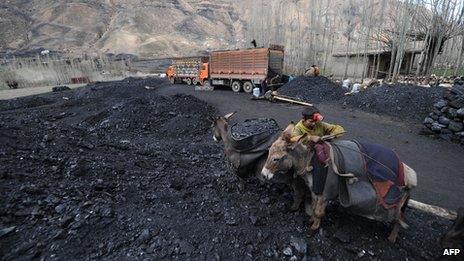
- Published19 May 2012
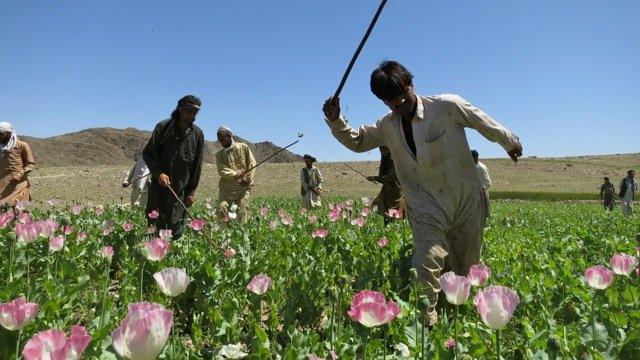
- Published4 June 2012
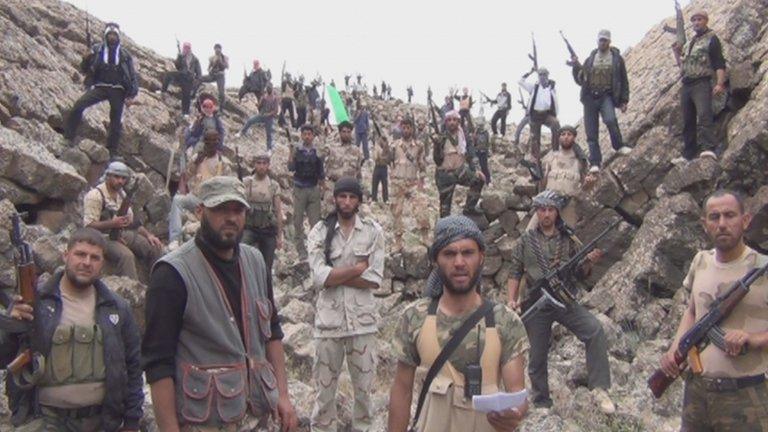
- Published5 June 2012
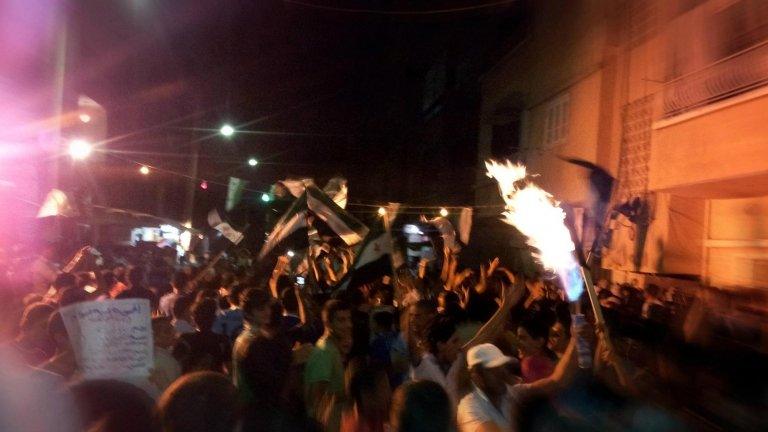
- Published17 March 2024
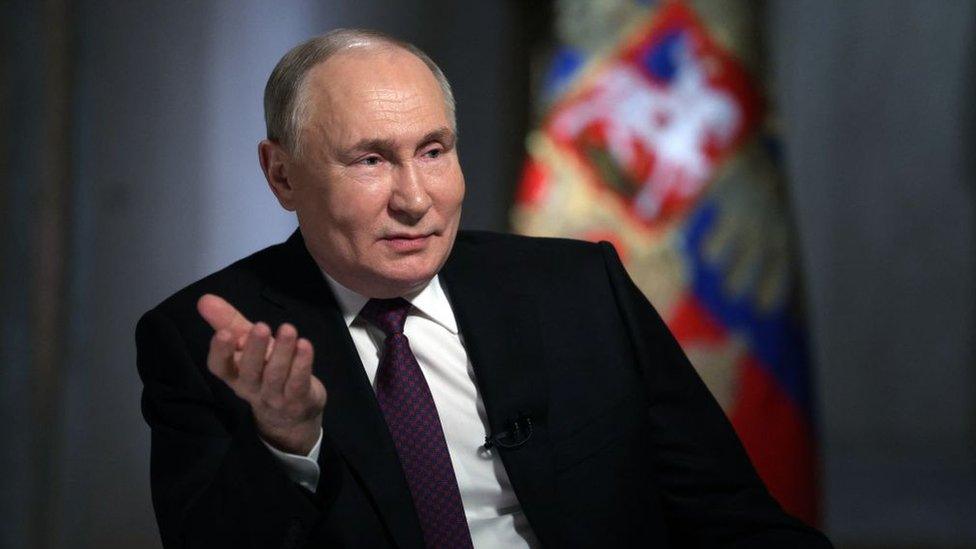
- Published29 July 2019